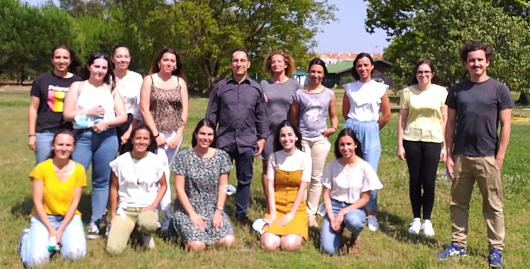Research Lab
SeaTox

29688
Lab Members
Lab leader
Junior Researcher
PhD students
Master Students
Research Interests
We combine Marine Science, Toxicology and Molecular Biology in four main areas:
1) toxicity testing biotechnological and biomedical applications;
2) linking aquatic and human health under the ‘One Health Perspective’;
3) drug discovery from novel marine bioactives,
4) investigating adaptation of marine life to global warming.
Our mission is to understand how organisms evolved to cope with stress under biotechnological and bioconservation perspectives, employing multiple biological models, from marine animals to zebrafish and murines. We specialize in stress biology, toxicopathology (especially genotoxicology and histopathology), “omics” and bioinformatics.
Twitter: @seatoxlab, Instagram: @seatoxlab
Website: https://sites.fct.unl.pt/seatox/
Research Highlights
Turning responses against environmental stressors into biotechnological and bioconservational assets
The oceans are the most biodiverse global habitat. Marine organisms possess unique adaptive features to cope with their surroundings that can provide us solutions to many current issues, from disease to pollution and global warming. Among such features we can find toxins and other bioactive proteins and metabolites that can be an alternative to synthetic drugs.
We established multi-omics approaches to find and characterise such substances, coupled with toxicological assays and a description of venom apparatuses of animals such as molluscs and annelids. Our findings enabled us to isolate cysteine-rich neurotoxins and enzymes that can interfere with cell death and cell cycle regulation.

Representative Projects
- “WormALL – Marine invertebrates as source of novel biotoxins: Investigating function and application through Polychaeta venomics, FCT-MCTES, Total and Unit funding: €240,000, Pedro M. Costa (PI).
- “GreenTech – Of pigments and toxins: an integrative approach to the biotechnological potential of a marine polychaete”, FCT-MCTES, Total and Unit funding: €200,000, Pedro M. Costa (PI)
- “MBStox – Multifunctional biomolecular systems for new methods of decontamination, protection and toxicological assessment”, FCT-MCTES, Total funding: €240,000, Unit funding: €20,000, Ricardo Lagoa (PI at IPL)
- “3Qs for quality – Development of molecular sensors and technologies for seafood quality assessment”, FCTMCTES, Total funding: €200,000, Unit funding: €90,260, Pedro M. Costa (Collaborator)
Selected Publications
Milhinhos, M.; Costa, PM. 2020. On the Progression of COVID-19 in Portugal: A Comparative Analysis of Active Cases Using Non-linear Regression. Frontiers in Public Health, DOI: 10.3389/fpubh.2020.00495
Diana Madeira and Carolina Madeira and Pedro M. Costa and Catarina Vinagre and Hans-Otto Pörtner and M{\'{a. 2020. Different sensitivity to heatwaves across the life cycle of fish reflects phenotypic adaptation to environmental niche. MARINE ENVIRONMENTAL RESEARCH, DOI: 10.1016/j.marenvres.2020.105192
Website
